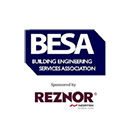BESA members lead the way in the fight for IAQ

Air pollution is blamed for 40,000 premature deaths in the UK every year and almost half a million across Europe. It costs our economy upwards of £20 billion a year, largely due to the additional burden on the NHS.
Air pollution is at illegal and unsafe levels in 169 local authorities across the UK mainly due to traffic emissions and a huge increase in the number of diesel vehicles on the road. Yet, while there have been plenty of high profile efforts to measure outside air pollutants, less attention is paid to what the indoor environment, even though we spend more than 80% of our time inside buildings.
Traffic is responsible for most of the nitrogen dioxide (NO2 )pollution imposed on building occupants. This causes inflammation of the airways, reduces lung function and exacerbates asthma – with particulates also linked to heart and lung diseases as well as certain cancers. NO2 on its own is estimated to be responsible for more than 23,000 premature deaths every year in the UK.
Creating indoor clean air zones can be done rapidly and at low cost – if everyone is clear about what is meant by indoor air quality (IAQ) and what is required to deliver it. This is something that the Building Engineering Services Association (BESA) has made a priority and our work has received a timely boost with the introduction of draft legislation in Parliament.
During the recent BESA National Conference in London, delegates heard that this potential new Clean Air Act would enshrine people’s right to breathe clean air as a “fundamental human right”. A draft Bill, introduced by Baroness Jenny Jones, is intended to replace outdated legislation from the 1950s, which was brought in to tackle the infamous ‘pea souper’ smogs.
The proposed law was launched on the 62nd anniversary of the first Clean Air Act and marked the 70th birthday of the National Health Service. The first reading of the Clean Air (Human Rights) Bill was unusual because it introduced 30 pages of proposed legislation that could be adopted in full immediately to address air pollution. It also specifically addressed IAQ for the first time – making the important health link to buildings.
This considerably raises the stakes for BESA’s project to establish buildings as clean air ‘safe havens’ and has major implications for the ventilation industry.
 |
| Giuseppe Borgese, BESA |
Right to clean air
At the launch of the Bill, Baroness Jones said local people and communities would be able to take legal action “to defend their right to clean air” if the Bill became law. “Given the premature deaths from air pollution and the complacency of successive governments, I think that making clean air a human right is the quickest way of getting the problem sorted,” she added.
“I think that giving parents and communities the ability to take legal action would focus the minds of the car manufacturers, the civil servants and local authorities. We should all enjoy clean air even when we are working in a busy city or living under an airport flight path.”
Peter Dyment of Camfil, who was an advisor to the Clean Air in London campaign that helped to draft the Bill, told the BESA Conference that the draft legislation showed “great insight”. He said it would use ISO, CEN and BSI technical standards to achieve compliance with World Health Organisation (WHO) guidelines for IAQ where people work and in public access city buildings.
“It is entirely deliverable and necessary to give people the right to clean air in buildings. Using international standards means that the legislation could easily be copied by other countries,” said Dyment of a Bill that is also the model for similar legislation proposed by the United Nations.
Having this legislation will be highly significant. It will allow us to apply specific measures to protect IAQ across the whole building engineering sector in line with BESA’s technical standards and best practice guidance.
Growing awareness
Dyment explained to the conference that harmful particulates were getting smaller, which makes them more dangerous when inhaled as they can penetrate further into the human body. New filtration standards are focusing on PM1 particulates (the smallest easily measurable), including those from diesel engines, which have been identified as a Group One carcinogen by the WHO and have now been linked by scientists to early onset Alzheimer’s disease.
“People are more aware of the pollution problem these days, particularly in connection with schools and hospitals,” added Dyment. “The government is publishing more air quality data and it is easy for people to assess local pollution levels using mobile phone apps and other low cost monitoring devices.”
The impact on children’s developing organs has also prompted increased focus on schools with new government guidance published for the design of school buildings. This presents a once in a generation opportunity for the building services industry to find the delicate balance between significantly improving IAQ without compromising thermal comfort or energy efficiency.
The revised guidance in Building Bulletin 101 (BB101) means that many educational facilities are reconsidering their ventilation strategies because it is increasingly clear that, as well as the health threats in polluted urban environments, high CO2 concentrations have a detrimental effect on children’s ability to concentrate.
The new requirement for fresh air rates of five litres per second per person is a major step up from the last version of BB101 published in 2006. Natural ventilation systems must now reduce CO2 levels to below 1,500 parts per million (ppm) and mechanical ventilation to below 1,000ppm. CO2 levels cannot exceed 1,500ppm for longer than 20 minutes in new classrooms while refurbished spaces must now achieve an average CO2 level of below 1,750ppm.
Finding solutions
Hybrid ventilation solutions are also included in the guidance for the first time alongside more familiar natural and mechanical systems. This gives engineers greater choice and room for innovation in order to achieve the new targets, but the challenge is how to achieve the higher air change rates without bringing the UK’s growing outdoor pollution problem indoors.
Greater focus on IAQ also creates an opportunity to address other anomalies like NHS technical design guidance being exclusively focused on managing the risk posed by internal sources of contamination. Measures to mitigate the threat from external air and its impact on patients (most of whose immunity systems may be severely compromised) should be a consideration for every healthcare facility and the proposed Clean Air Act would encourage new approaches here too.
The building engineering services industry has a wide range of solutions to offer including filtration and other (mainly low cost) improvements, such as upgrading fans and basic maintenance of ventilation. These would not only reduce health risks to building occupants, but also do it in a way that improves the overall efficiency of the ventilation system and so significantly cut running costs.
Those most at risk from poor IAQ, such as the young, elderly or seriously ill, also spend relatively long periods indoors – and many are in the growing number of urban areas that are outside WHO limits for airborne pollutants.
With a new Clean Air Act, which it is hoped will become law at some point this year (2019) – we will have even more weapons at our disposal to take on the battle with contaminated air inside buildings and increase protection levels for those who need it most.
Giuseppe Borgese* is president- elect of the Building Engineering Services Association (BESA) and works for Apleona HSG Ltd.








